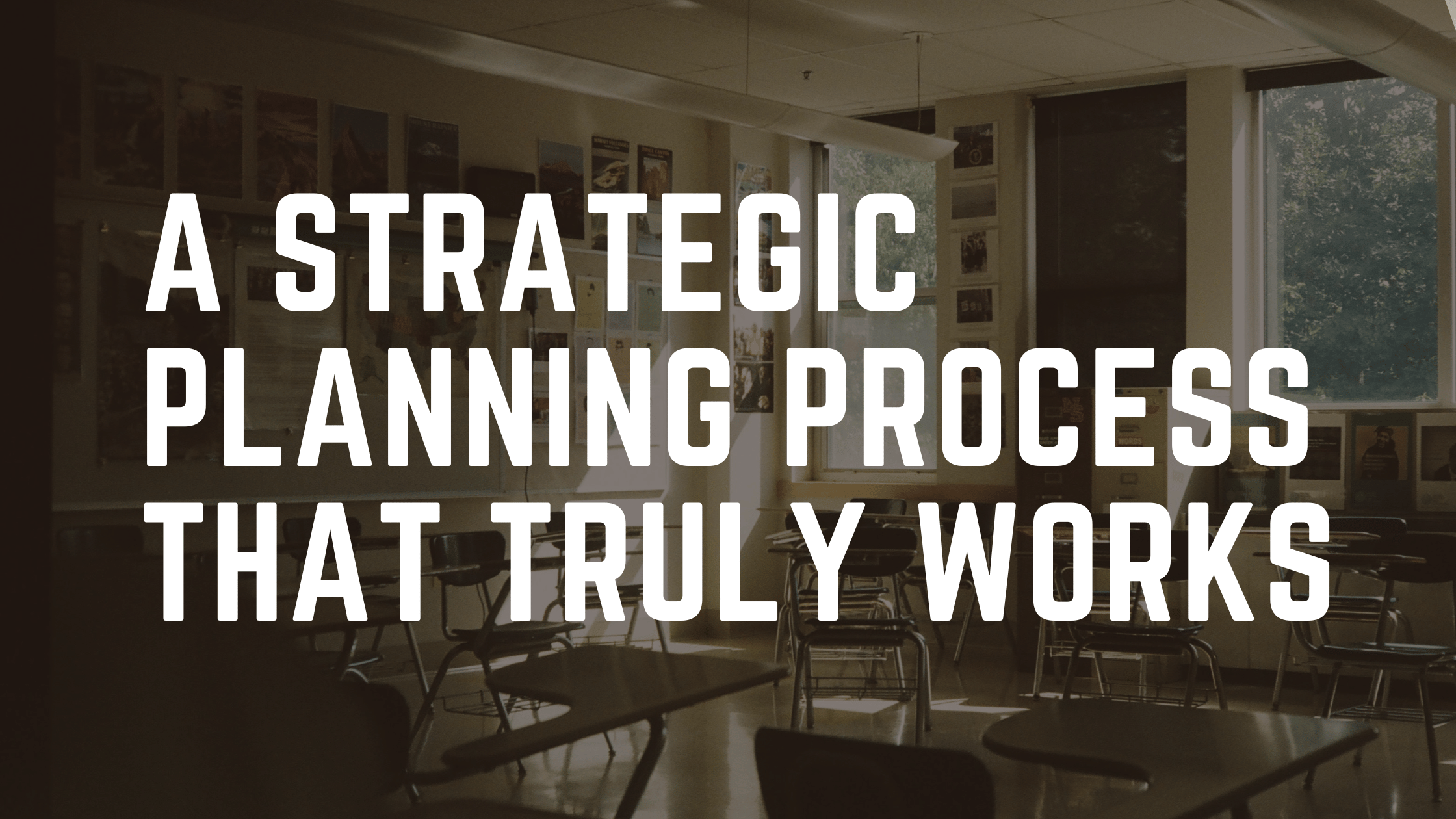Continued Learning
Why Your School Needs a Strategic Planning Process That Truly Works
In a time when change is constant and community expectations are higher than ever, does your district’s strategic plan do more than check boxes?
How to Actually Implement a Strategic Plan
Most strategic plans lead to nowhere. Not because they’re bad, but because nobody actually does them.Whether you’re running a school district or bootstrapping a nonprofit, this guide is built for people who want to nail results. We’re talking actionable steps, frameworks that are proven to work, and no jargon from someone stuck in theory and never led with action. Ready? Let’s get into it.
Proven Strategies for Boosting Staff Engagement & Retention
Accountability is key. If change is desired, each person needs to know how they individually are responsible for action and outcomes.
Why Teacher Leadership Requires Specialized Training
Education is fundamentally about people. Whether we’re leading students or colleagues, our ability to connect, communicate, and collaborate is what drives success. By prioritizing leadership training for teacher leaders, we not only support their individual journeys but also strengthen the fabric of our school communities. When we invest in our people, we build schools where everyone - students and staff alike - can thrive.
Beyond the Rulebook: Why School Leaders Need Real-World Leadership Training
As an education leadership consultant with over a decade of experience, I’ve witnessed the challenges new school administrators face when transitioning into their roles. Most preparation programs excel at teaching the technical aspects of school management—legal frameworks, master scheduling, and compliance with policies. However, a critical gap persists: the human-centered leadership skills essential for navigating the complex, emotionally charged realities of leading a school community. Research supports this observation: a 2019 Wallace Foundation study found that while 80% of principals felt confident in technical skills, only 40% felt prepared to handle interpersonal conflicts or foster a positive school culture.
Nurturing Youth Well-Being Through Leadership Opportunities
Despite the significant investment schools make in character education and social-emotional learning programs, we have not seen a corresponding decrease in student mental health challenges. Rates of anxiety, depression, and stress among young people remain stubbornly high, suggesting that these approaches alone may not be enough.
Rethinking Youth Leadership - Beyond Student Council
When we think of youth leadership in schools, the image that often comes to mind is a student council election or the class president giving a speech. But true leadership is much broader, and every student can benefit from opportunities to lead, regardless of whether they hold a formal title.
The Benefits of Youth Leadership Training
Youth leadership training is a pivotal investment in the development of young individuals, equipping them with the skills, confidence, and vision necessary to become effective leaders in their communities and beyond. Here are some of the key benefits of participating in youth leadership programs.
Characteristics or Skills?
What makes a good instructional coach? Is content knowledge or people skills?
How to Encourage Leadership in Teens: Tips for Parents and Teachers
Encouraging leadership in teens is a crucial step in their personal and professional development. But for most, it seems hard to execute as the idea is a little abstract and overcomplicated. Helping people build their confidence has little to do with what you say to them and more to do with what responsibility you give to them.
Leadership's Balancing Act: Tactical Management and Visionary Strategy
Great leadership is rarely about being everything to everyone. It’s about knowing your strengths, recognizing your limitations, and surrounding yourself with the right people to complement your abilities. Organizations that prioritize building balanced leadership teams will not only avoid the pitfalls of one-dimensional leadership but also create a foundation for sustainable success.
Being Great at the Work Doesn’t Mean Being Great at Leading the Work
Leadership is hard. It’s not a natural next step for everyone, and that’s okay. The key is recognizing that leading isn’t about being the best at the work itself; it’s about empowering others to be their best. When we invest in helping leaders build the skills they need, we create better work environments, stronger teams, and a brighter future for everyone involved.
How to Start a Student Leadership Program in Your School
Learn how to start a student leadership program in your school with our comprehensive guide. Discover the steps to develop leadership skills, engage students, and create a positive school culture.
7 Steps to Building a Student-Led School Culture
Building a youth leadership program that fosters a student-led school culture requires those that have been in the field to let go of some pre-conceived notions about structure and ownership. Student-Led is the future. That is, if you want a school culture that is impactful and drives engagement. Students need to be the drivers of their reality. It creates buy-in to a system of education that is not human-centered or aware.
Let Students Decide: What is our school culture?
Let’s be honest, not everyone is into the idea of letting students decide how to build a school culture. It involves letting go of control to a certain extent. Not many like this idea. Too often students are asked for their input on what could be done but little action comes from the students’ voice. What is a surefire way to make sure students don’t participate in school culture? You guessed it - don’t take their input seriously.















